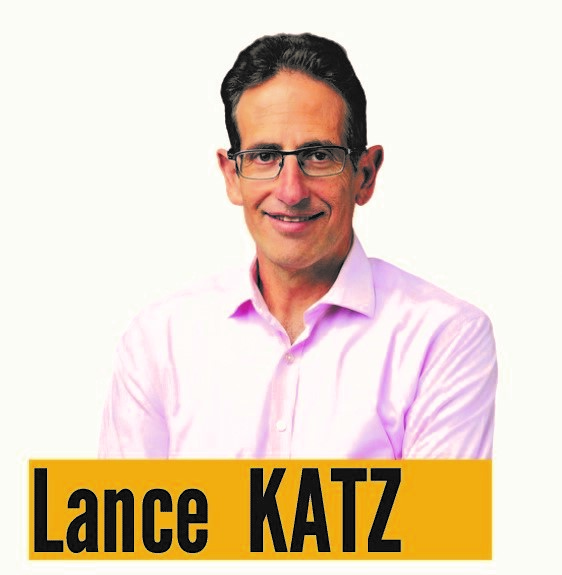
Featured Item

Communal generosity a safety net for pandemic-hit Capetonians
The economic impact of COVID-19 on the Cape Town Jewish community has been devastating, but it would have been a lot worse without the help of various Jewish organisations.
This was the general sentiment expressed by the panel at a webinar titled, “A streetcar named corona” on 29 August 2021. Brought together by the United Jewish Campaign (UJC), the three panellists were businessman Steven Nathan, Jewish Community Services in Cape Town (JCS’s) Executive Director Hazel Levin, and UJC chairperson Lance Katz. Entrepreneur Dawn Nathan-Jones facilitated the discussion.
Companies have had to update and expand their technological capacity, such as conducting meetings online, 10 years earlier than they planned to. People who never trusted a bank and always wanted to go into the branch have been forced to do online banking.
“If you look at interest rates in South Africa, they’re at the lowest level they’ve been in more than 50 years,” said Nathan. “In the late 1990s, the prime rate was 25.5%, in 2008/9 it was 15%, and now it’s about 7%.”
On a positive note, there have been some winners as a result of the pandemic. The pharmaceutical sector, online delivery, and technology have all benefited. In addition, people with financial assets have done quite well.
“But unfortunately, there have been far more losers,” said Nathan. “Obviously, the hospitality/leisure sector has been a bigger loser. If you are in a first-world country, the economic performance probably isn’t that bad. But if you are in a third-world country, a country like South Africa, it’s really devastating and unfortunately, what it has done is increase the gap between the haves and the have nots because wealthy countries can afford to weather the storm and have the ability to continue to educate online. In South Africa, private schools can more or less maintain education, but government schools can’t.”
Since the pandemic started, JCS has recorded the following statistics – 100 of its clients have become unemployed, it has supplied accommodation to 30 individuals, and 101 of its clients require material relief. The costs of the latter increased by more than R2 million from 2019 to 2020.
The Tikvah Foodbank, the JCS’s food initiative, has recorded a 200% increase in the number of recipients during 2021 due to COVID-19.
“We have implemented an unemployment initiative in which our clients are coming in or being guided via Zoom in a programme called Quantum Growth which analyses their skill set,” said Levin. “Many people have lost their positions and won’t go back into the same position. Through this, they have attained other skills that they aren’t aware of. We’re trying to show them what other avenues they can look at to gain employment.”
The UJC is the central fundraising arm for the community, said Katz. “Collectively, we’ve raised about R60 million-plus a year, and in addition to that, about another R10 million. So, from the UJC, we fund about half the community’s needs in terms of 36 beneficiary organisations. First, we raise money, and second, we disperse those funds according to a rigorous allocation process in terms of which we assess the needs, understand the organisations, what their budgets and deficits look like, and make sure that the funding we raise goes where it’s needed so that our organisations can continue to fulfil their mandates and do the amazing work they do.”
The UJC set up the COVID Emergency Fund, which Katz described as “a game-changer for our community”.
“We realised that there were going to be significant costs as a result of the pandemic, and we raised, amazingly, about R22.5 million quickly. It just shows the generosity of the Jewish community in Cape Town and donors from around the world who stepped up to assist us as well. To date, we’ve dispersed about R19.4 million. A lot of this funding went into PPE (personal protective equipment), extra medical equipment, testing, and the extra staffing required across the board and at different organisations.”
Highlands House, schools, and the JCS each got more than R5 million from the fund.
“JCS is encouraging children to come and assist with packing parcels,” said Levin. “We’ve also had some donations from children that have given a percentage of their Barmitzvah money to JCS.”
The UJC has a four-pronged strategy, Katz said. “The first component is communicating and educating – a lot of people are unaware of community organisations, the work they do, and the role the UJC plays. Part number two is never to take our existing base of donors for granted – we need to nurture those relationships, and add value to our donors. The third element of our strategy is to inspire and enrol a new generation of donors to get involved with us and the broader work of our community. The fourth is greater collaboration between the UJC and its beneficiary organisations.”
Towards the end of the webinar, Nathan encouraged people to maintain a positive outlook in testing times. “We need to be optimistic and look for opportunities, we need to act rather than talk,” he said. “The best time to start a business is when things are really difficult because if you can get a business to do well and survive in this environment, when things turn – and they will turn – you will be in a much stronger position.”
Levin recounted a story that exemplified Nathan’s advice.
About a year and a half ago, she was in the JCS’s officers when a man approached her. “I’ve been standing on the road begging, and I’ve heard about Jewish Community Services and I know I’m Jewish and I need help,” he told her.
The JCS took him in and, according to Levin, “this gentleman has cleaned himself up wonderfully”. Members of the community stepped forward and gave him a job as a security guard, but inopportunely, the COVID-19 lockdown came into force. Though he was now unable to earn a full-time income, he didn’t wallow in self-pity. With a bucket of water and a squeegee, he started cleaning cars.










